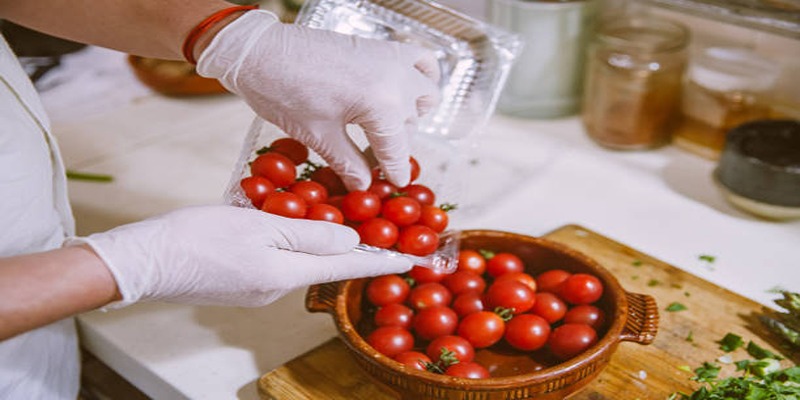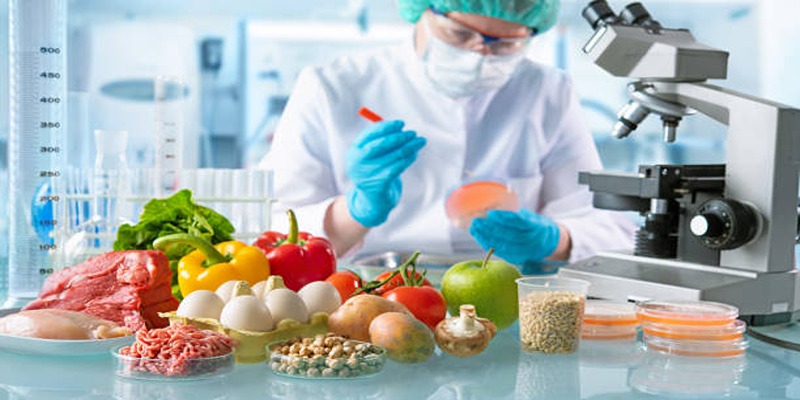The Role of Natural Preservatives in Food Safety
Jul 09, 2024 By Madison Evans
In recent years, there has been a growing shift towards the use of natural preservatives in food safety. As consumers become increasingly aware of the potential health risks associated with synthetic additives, the demand for clean label products has surged. Natural preservatives, derived from sources like plants, herbs, and fruits, offer a promising alternative to chemical preservatives. They not only help in extending the shelf life of food products but also maintain their nutritional value and taste. This trend reflects a broader movement towards sustainable and health-conscious living, where the natural preservation of food plays a crucial role in meeting consumer needs while ensuring safety and quality.
Understanding Natural Preservatives:

Natural preservatives work by inhibiting the growth of microorganisms such as bacteria, molds, and yeasts that can spoil food and pose health risks. Common natural preservatives include salt, sugar, vinegar, and natural extracts like rosemary and citrus. Salt and sugar decrease water activity, making it difficult for microbes to thrive. Vinegar, with its acetic acid content, lowers the pH of food, creating an inhospitable environment for bacterial growth.
Plant-based extracts, such as those from rosemary and citrus, are rich in antioxidants and antimicrobial compounds that extend the shelf life of products while maintaining their nutritional profile. The move towards natural preservatives aligns with increasing consumer preferences for transparency and cleaner labels, highlighting the important balance between food safety, shelf life, and maintaining the nutritional and sensory qualities of food.
Benefits of Using Natural Preservatives:
Reduced Health Risks:
One of the main reasons for the shift towards natural preservatives is the potential health risks associated with synthetic additives. Chemical preservatives like sodium benzoate, BHA (butylated hydroxyanisole), and BHT (butylated hydroxytoluene) have been linked to various health issues such as allergies, hormonal imbalances, and possibly even cancer. Natural preservatives offer a safer alternative that reduces these potential risks.
Longer Shelf Life:
Natural preservatives can effectively extend the shelf life of food products without compromising their quality or safety. This allows for more efficient distribution and reduces food waste, which is a significant issue globally.
Clean Labeling:
Consumers are increasingly seeking transparency in the ingredients used in their food products. The use of natural preservatives allows for cleaner labeling, with recognizable and simple ingredients that are free from artificial or synthetic additives.
Common Types of Natural Preservatives:
- Salt: Salt has been used as a preservative for centuries due to its ability to draw out moisture and inhibit microbial growth. It is commonly used in preserving meat, fish, and vegetables.
- Sugar: Like salt, sugar also lowers water activity in food products, making it difficult for microorganisms to grow. Sugar is often used in jams, jellies, and other sweet preserves.
- Vinegar: Acetic acid in vinegar creates an acidic environment that inhibits the growth of bacteria. It is commonly used in pickling fruits and vegetables.
- Natural plant extracts: Rosemary, oregano, thyme, and other herbs have natural antimicrobial properties that make them effective preservatives. Citrus extracts, such as lemon and lime, are also commonly used for their antioxidant and antimicrobial qualities.
The Shift from Synthetic to Natural Preservatives:
The shift from synthetic to natural preservatives is driven by both consumer demand and regulatory changes. As consumers become more educated about the ingredients in their food, they are increasingly opting for products that contain natural over synthetic additives. Regulatory bodies across the globe are also imposing stricter guidelines on the use of chemical preservatives, further encouraging the food industry to adopt natural alternatives.
This change is not only beneficial for health reasons but also aligns with sustainable practices, as natural preservatives often have a smaller environmental footprint. The food industry is investing heavily in research and development to discover new natural preservatives and optimize existing ones, ensuring they are as effective as their synthetic counterparts without compromising on safety or quality.
Impact of Natural Preservatives on Food Shelf Life:
The application of natural preservatives significantly enhances the shelf life of food products. For instance, antioxidants from plants like rosemary effectively delay oxidation in fats, preventing rancidity in products like processed meats and oils. Similarly, the antimicrobial properties of citrus extracts can protect against spoilage and pathogenic microorganisms.
These natural solutions help maintain the freshness and quality of food over extended periods, reducing the need for frequent restocking and curbing food wastage. Additionally, by balancing the preservative effects with the nutritional and sensory qualities of food, natural preservatives offer a holistic approach that appeals to both health-conscious consumers and the food industry seeking sustainable preservation methods.
Health Implications of Natural vs. Synthetic Preservatives:
- Allergies and Sensitivities: Synthetic preservatives have been linked to allergic reactions, especially in individuals with sensitivities to certain additives. Natural preservatives, on the other hand, are less likely to cause allergies or adverse reactions.
- Hormonal Imbalances: Chemical preservatives like BHA and BHT have been shown to disrupt hormonal balance in the body, potentially leading to various health issues. Natural preservatives do not pose similar risks.
- Cancer Risk: There is some evidence that synthetic preservatives may increase the risk of cancer due to their potential carcinogenic properties. Natural preservatives do not pose similar concerns.
Consumer Trends Towards Natural Food Preservation:
Consumers are increasingly aware of the health implications linked to synthetic preservatives, driving a significant shift towards natural preservation methods. This trend is bolstered by a growing preference for organic and minimally processed foods. Transparency in food labels has become paramount, with shoppers demanding more information about the additives used in their products. As such, companies are responding by integrating natural preservatives, such as those derived from plants, spices, and fruits, to meet consumer expectations.
This movement not only enhances consumer trust but also aligns with sustainable practices and regulatory demands. The future of food preservation appears poised to embrace natural solutions that ensure safety, quality, and environmental responsibility.
Future Prospects of Natural Preservatives in Food Safety:

The future prospects for natural preservatives in food safety are promising, driven by continuous advancements in food science and technology. Companies are actively researching novel natural extracts and compounds that offer superior preservation capabilities. For instance, innovative techniques such as encapsulation and nanotechnology are being explored to enhance the efficacy and stability of natural preservatives.
These methods can improve the controlled release and distribution of preservatives, ensuring consistent protection against spoilage. Additionally, there is a growing interest in using fermentation by-products and natural antimicrobials sourced from beneficial microorganisms. As research progresses, these advancements will likely lead to more effective and versatile natural preservative solutions, meeting consumer demand for safer and more transparent food products. The integration of these cutting-edge techniques signifies a move towards a more sustainable and health-conscious food industry.
Conclusion:
The use of natural preservatives is a promising solution that offers multiple benefits to consumers, the food industry, and the environment. As we continue to shift towards more sustainable practices, it is essential to explore and invest in these natural solutions for food preservation. With continuous advancements in research and technology, it is likely that we will see an even greater integration of natural preservatives in the future. This aligns with consumer demand for cleaner labels, healthier products, and a more environmentally-friendly approach to food production. The future of food preservation looks bright as we embrace innovative and natural methods to ensure food safety and quality.







